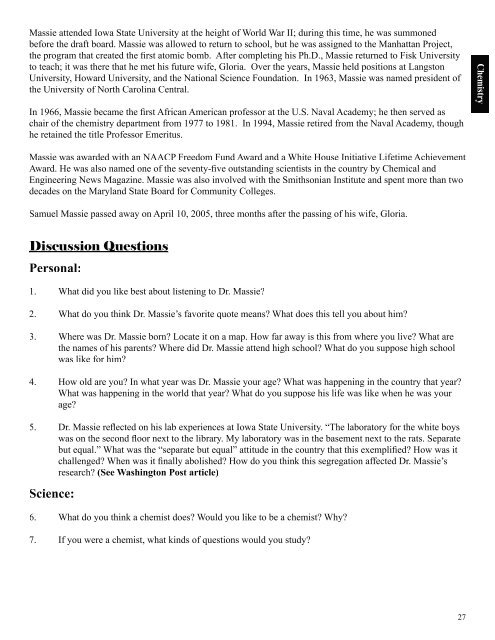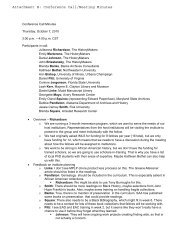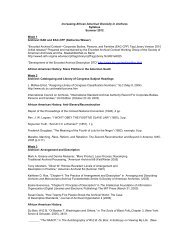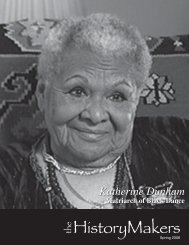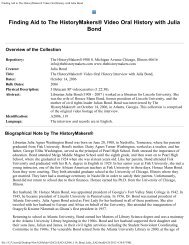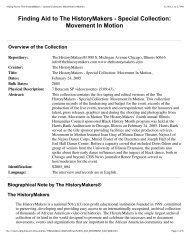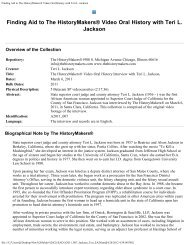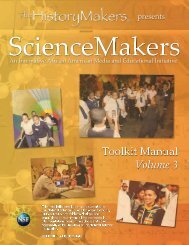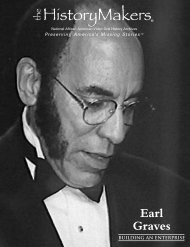ScienceMakers Toolkit Manual - The History Makers
ScienceMakers Toolkit Manual - The History Makers
ScienceMakers Toolkit Manual - The History Makers
Create successful ePaper yourself
Turn your PDF publications into a flip-book with our unique Google optimized e-Paper software.
Massie attended Iowa State University at the height of World War II; during this time, he was summoned<br />
before the draft board. Massie was allowed to return to school, but he was assigned to the Manhattan Project,<br />
the program that created the fi rst atomic bomb. After completing his Ph.D., Massie returned to Fisk University<br />
to teach; it was there that he met his future wife, Gloria. Over the years, Massie held positions at Langston<br />
University, Howard University, and the National Science Foundation. In 1963, Massie was named president of<br />
the University of North Carolina Central.<br />
In 1966, Massie became the fi rst African American professor at the U.S. Naval Academy; he then served as<br />
chair of the chemistry department from 1977 to 1981. In 1994, Massie retired from the Naval Academy, though<br />
he retained the title Professor Emeritus.<br />
Massie was awarded with an NAACP Freedom Fund Award and a White House Initiative Lifetime Achievement<br />
Award. He was also named one of the seventy-fi ve outstanding scientists in the country by Chemical and<br />
Engineering News Magazine. Massie was also involved with the Smithsonian Institute and spent more than two<br />
decades on the Maryland State Board for Community Colleges.<br />
Samuel Massie passed away on April 10, 2005, three months after the passing of his wife, Gloria.<br />
Discussion Questions<br />
Personal:<br />
1. What did you like best about listening to Dr. Massie?<br />
2. What do you think Dr. Massie’s favorite quote means? What does this tell you about him?<br />
3. Where was Dr. Massie born? Locate it on a map. How far away is this from where you live? What are<br />
the names of his parents? Where did Dr. Massie attend high school? What do you suppose high school<br />
was like for him?<br />
4. How old are you? In what year was Dr. Massie your age? What was happening in the country that year?<br />
What was happening in the world that year? What do you suppose his life was like when he was your<br />
age?<br />
5. Dr. Massie refl ected on his lab experiences at Iowa State University. “<strong>The</strong> laboratory for the white boys<br />
was on the second fl oor next to the library. My laboratory was in the basement next to the rats. Separate<br />
but equal.” What was the “separate but equal” attitude in the country that this exemplifi ed? How was it<br />
challenged? When was it fi nally abolished? How do you think this segregation affected Dr. Massie’s<br />
research? (See Washington Post article)<br />
Science:<br />
6. What do you think a chemist does? Would you like to be a chemist? Why?<br />
7. If you were a chemist, what kinds of questions would you study?<br />
27<br />
Chemistry


